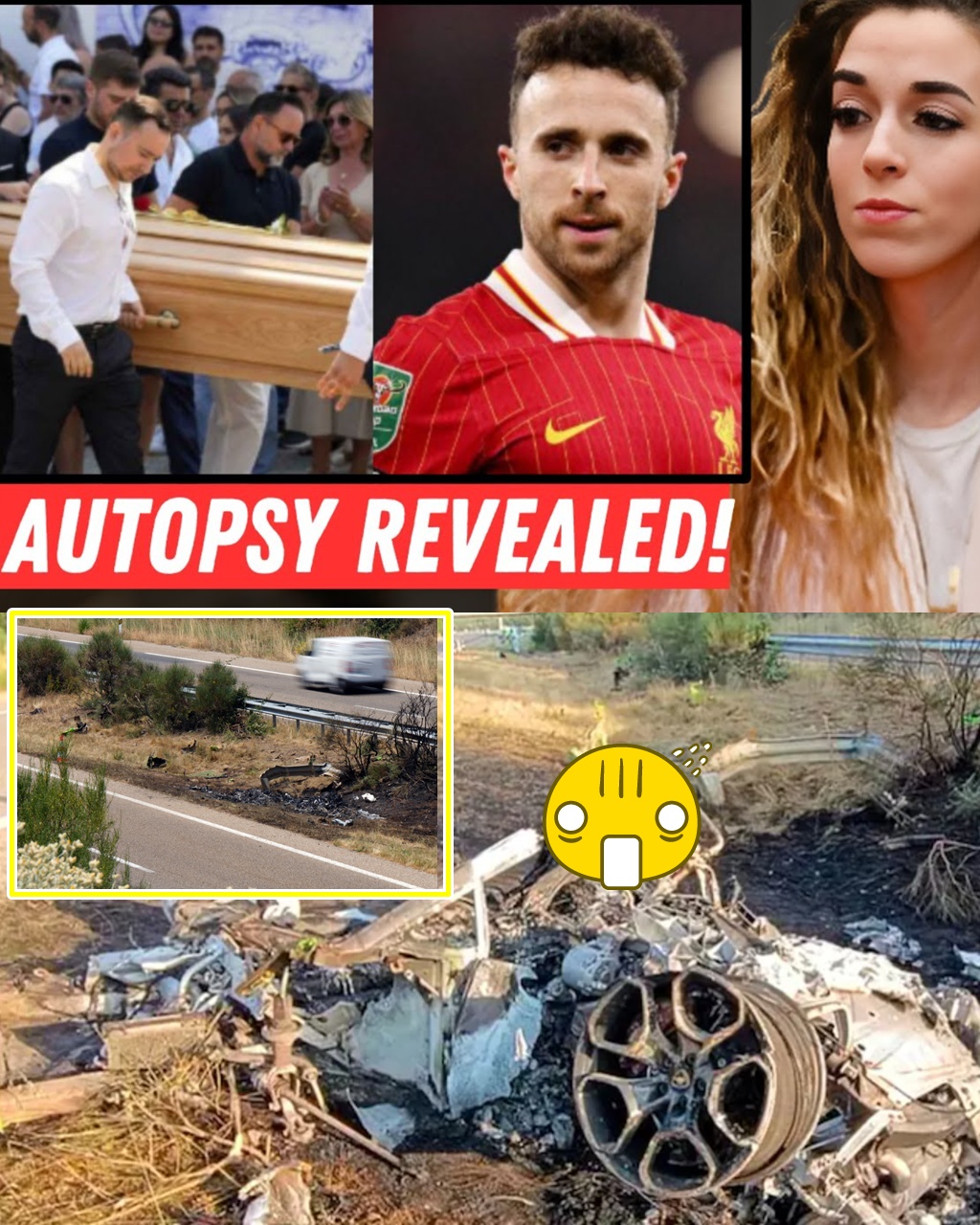The Truth Is Too Sh0cking: Police Finally Release Full Autopsy Report and Reveal the Unexpected Cause Behind Footballer Diogo Jota’s Tra:gic De:a:th – And It’s Not What Anyone Expected12 Tháng 7, 2025
The world of football continues to reel in disbelief as authorities have finally broken their silence on the sudden and heartbreaking death of Diogo Jota. After days of speculation, confusion, and unconfirmed rumors circulating online, the official police report has now been released—and the truth is more shocking than anyone could have imagined.
An Unexpected Loss That Shook the Football World
On a quiet Sunday morning, the football community was devastated by the news that 28-year-old Portuguese international Diogo Jota had been found unresponsive in his private residence. Tributes flooded social media. Former teammates, rivals, and thousands of fans paid emotional homage to the man known for his passion, work ethic, and unforgettable goals.

But in the absence of official information, wild theories spread like wildfire. Was it a medical emergency? An accident? Or something more sinister?
Now, the waiting is over—and the truth has finally come out.
Police Confirm Official Cause of Death
In a press conference held earlier today in Lisbon, Chief Inspector Ana Martins of the Portuguese Federal Police stood before a somber crowd of journalists and confirmed the findings of the autopsy report.
“After a thorough investigation, including toxicology tests and examination of the scene, we can now officially confirm that Mr. Diogo Jota’s cause of death was acute cardiac arrhythmia, triggered by an undiagnosed congenital heart condition.”
The condition, known medically as arrhythmogenic right ventricular cardiomyopathy (ARVC), is rare—and often undetectable during standard fitness evaluations. According to experts, it can lie dormant for years before suddenly striking, often during rest or periods of high emotional or physical stress.
“He Never Showed Any Signs,” Family Says
In a deeply emotional statement released by the family, Diogo’s wife, Helena, wrote:
“He was full of life just the night before. Laughing, joking with our kids. We had no idea anything was wrong. This was something no one could have seen coming.”
Family members also revealed that Jota had complained of “mild fatigue” in the days prior to his death but had attributed it to overtraining and sleepless nights with his newborn daughter.
The Football Community Reacts
Liverpool FC, his former club, released an emotional tribute shortly after the police announcement, writing:
“Diogo wasn’t just a player. He was family. His smile lit up the dressing room. We are heartbroken.”
UEFA also confirmed that a moment of silence will be observed in all matches this week in honor of the fallen star.
Former teammates such as Mohamed Salah and Cristiano Ronaldo have taken to social media to express their disbelief and grief, with Salah writing:
“Still can’t believe it. Rest easy, my brother.”
Fans Raise Questions—and Push for Reform
Despite the clarity provided by the report, not everyone is at ease. Many fans and analysts are now calling for more advanced cardiac screenings for professional athletes, especially those involved in high-intensity sports like football.
A petition launched just hours after the press conference, titled “Jota’s Law,” is already gaining traction online, demanding mandatory ARVC-specific screening for all top-tier athletes.
“If this can happen to a world-class athlete like Jota, it can happen to anyone. We owe it to him to prevent the next tragedy,” one supporter wrote on X (formerly Twitter).
A Legacy Beyond the Pitch
While the autopsy has answered the questions surrounding his death, it’s clear that the legacy of Diogo Jota will live far beyond the football field.
He was a symbol of humility, hard work, and quiet strength. From his humble beginnings in Portugal to his rise as a star in the Premier League, Jota inspired a generation of young athletes to chase their dreams, no matter the odds.
And now, even in death, his story may serve a higher purpose: saving lives through awareness, prevention, and reform.